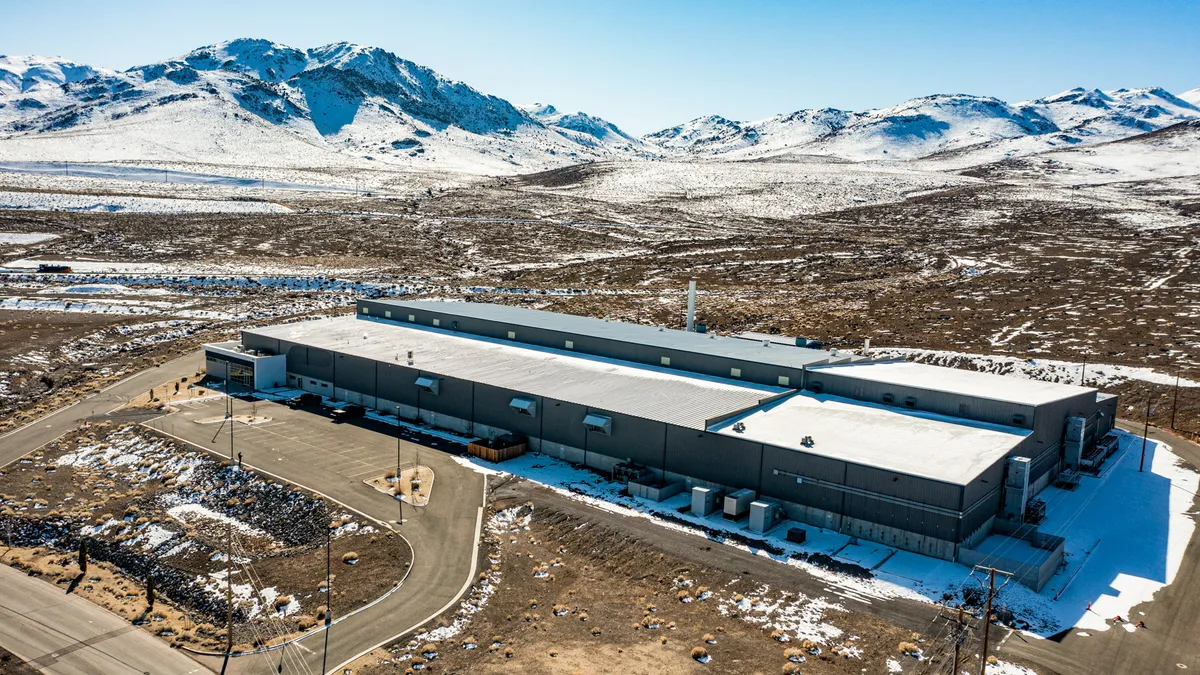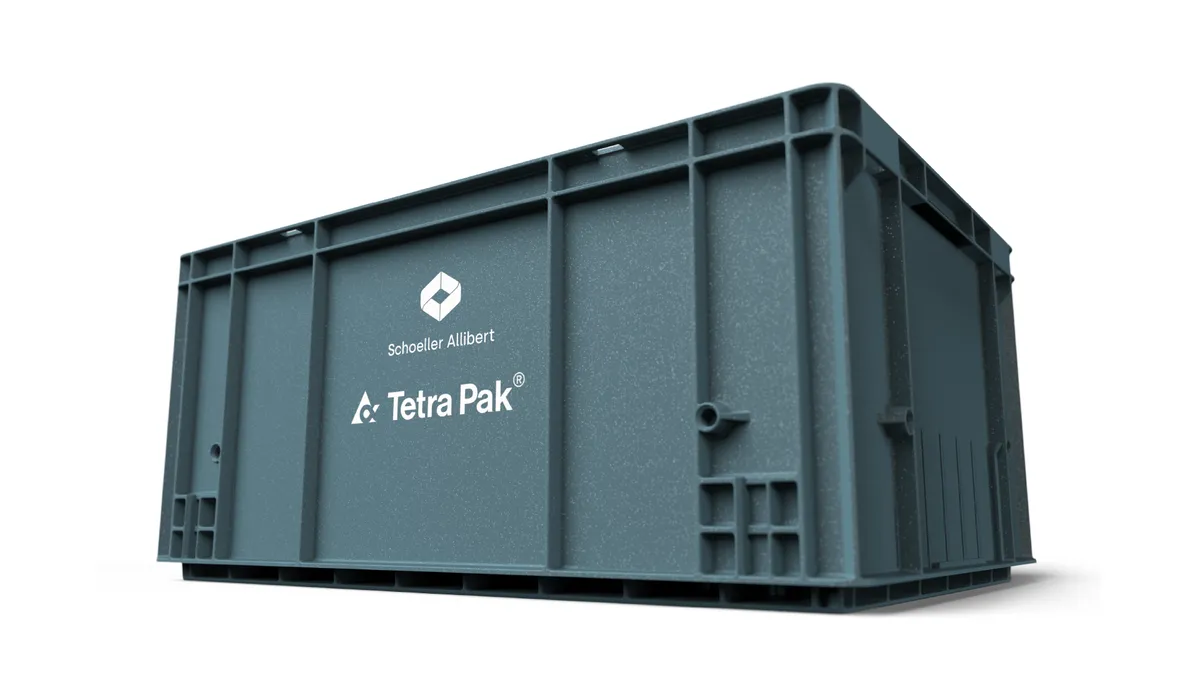A quick glance at the news might lead you to draw some pretty grim conclusions about the present state of recycling: national media outlets report soaring costs and slashed municipal recycling programs in the wake of China's scrap import ban, forecasting the "end of recycling" as we know it.
Industry leaders, however, struck a more sanguine tone at last week's 2019 Plastics Recycling Conference and Trade Show in National Harbor, Maryland, which dedicated a plenary session to exploring "Life After National Sword." Waste Dive was on the scene jotting down key insights and takeaways:
Reexamining market strategy
Sunil Bagaria, president of GDB International, Inc., described China's scrap ban as "the shock that we needed as a company."
"We woke up because of the China ban, and I'm glad we woke up," he told attendees. "Ultimately, there will be no countries to turn to — and then what will we do?"
In the wake of National Sword, GDB International went from exporting plastic film scrap overseas to pelletizing it into post-consumer resin (PCR) for domestic sale — an opportunity, Bagaria noted, the rest of the country might consider tapping into.
"We need to create more recycling infrastructure and process scrap here," he urged. "If plastic scrap is a valuable commodity in other countries, then it is also valuable here. There is more value in selling pellets than in selling scrap … the investment will pay off multiple times."
Keith Ristau, president and CEO of Far West Recycling, reported a similar pivot to domestic markets. The company's mixed paper, PET, HDPE and plastic film bales are now sold within North America, while bulky rigids — their "biggest challenge since Green Fence and with National Sword" — are shipped to a secondary sorting facility.
Still, acknowledged Ristau, the industry might never fully recover from the fallout of China's ban: while National Sword has "had a positive influence on the recycling industry by forcing all of us to produce a good-quality product," it has, by the same token, "had a huge influence on the market and pricing, which are now at all-time lows."
"We all know — National Sword has disrupted the industry probably forever," he concluded.
Keeping the faith
Adina Renee Adler, assistant vice president of international affairs at the Institute of Scrap Recycling Industries (ISRI), offered a more optimistic take on the current market state.
"Scrap is not waste," she declared. "I'm going to shout it from the rafters. Waste implies rubbish, trash."
Scrap, on the other hand, was always "a product that had value" — and for many markets, that hasn't changed. In fact, the U.S. exported 40.6 million metric tons of scrap in 2018, according to Adler — approximately 7% more than in 2017 — with 10 new markets added that year.
"Scrap commodities are bought, not sold," Adler emphasized to attendees. "A lot of people think we're dumping them in other countries, but scrap commodities are bought — that's driven by value, quality and supply." And while she acknowledged that there "is a future that's going to involve what Sunil was getting at," she urged attendees to retain faith in the market's resilience: "Trade will always continue — the demand is there, driven by these principles."
Shouldering environmental responsibility
John Caturano, senior sustainability manager at Nestlé Waters North America, expressed his apprehension over the well-documented war on plastics.
"I can't watch a ball game on Saturday without seeing an ad about ocean plastic," Caturano lamented. "The plastic situation in oceans is a big issue; it's become very emotional to people and really hurt the image of plastic. It's socially not very acceptable to young folks, and that scares me."
Bagaria, on the other hand, embraced this public backlash, addressing the environmental costs of plastic pollution head-on.
"Human beings are most intelligent animals — and what are we doing to our oceans?" he demanded. "Taking fish and putting plastic into it — how can we do this? Just because we like using plastic?"
Relying on the world's least developed countries to take our plastic scrap, Bagaria asserted, is no longer a viable option — or a fair one, considering the U.S. has the largest per capita consumption of plastic in the world. Rather, he said, consumers should make clear their preference for sustainable products — and companies must accordingly scale back on plastic production.
"When ExxonMobil makes a commitment to sustainability and then the next week announces increased production of plastic — there's continued production of plastic, and recycling isn't able to keep up," he noted. "You see and read a lot of things about people recovering plastic from oceans — the industry needs to focus on preventing 10 million tons of plastic from going into the ocean in the first place. I think that would be a much more effective way of addressing the problem."
Ultimately, Bagaria stressed, "No profit is worth the cost to the environment."
"This planet is not ours — it belongs to future generations," he reminded attendees. "We must do everything we can to keep it safe for our grandkids and great-grandkids."























